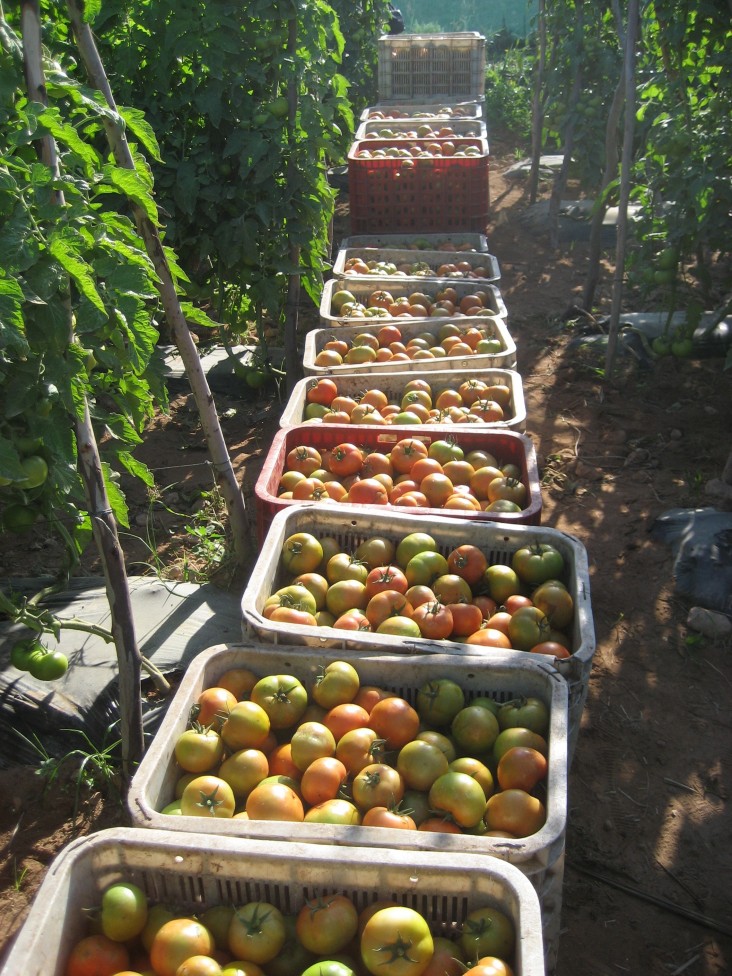
Protecting Bees, Agriculture, and the Environment: Jordanian and Israeli beekeepers developed a research program assessing pollen used by bees, treating bee diseases and monitoring honey quality. These activities assist farmers in selecting flowers to cultivate bees, keeping them healthy and producing honey for sale. Through workshops and outreach they expanded beekeeping and honey production as an income-generating activity for roughly 1,000 Jordanian farmers, while contributing to ecosystem health at a time when Colony Collapse Disorder (CCD) was taking hold. Jordan’s government created a new central bee lab in 2010 to house a MERC project on CCD, and the network has already grown on its own to include beekeepers throughout the Middle East and North Africa, with plans to expand beyond the region. Several apiaries that have never been tested are now included in the work so the researchers may correlate between a viral spread and low bee populations. Improved hive-tending methods utilizing knowledge from earlier MERC research projects on bee health, diet and genetic diversity have now been taught to nearly 1,800 beekeepers and extension agents from ten countries. These activities focused on beekeeping as an income generator for women, the disabled and other vulnerable populations, including Iraqi war widows.
Stopping the Spread of Mango Disease: Mango malformation disease can devastate fruit yields. An Egyptian-Israeli MERC project identified a primary route through which the disease spreads to new seedlings. The scientists developed cost-effective methods to reduce disease transmission. They also produced and distributed 5,000 pamphlets in Arabic to Egyptian farmers with simple guidelines to significantly reduce the spread of infection.
Uniting to Combat Agricultural Disease in Tomato: Scientists working on a region-wide MERC project have developed tomato lines and hybrids resistant to tomato yellow leaf curl virus, one of the most costly horticulture diseases in the world. Tomatoes are a valuable regional crop easily grown by poor farmers. The MERC scientists have successfully tested their resistant tomato varieties against the strains of the virus found throughout the region. The project also used conventional and marker-assisted breeding of resistant tomatoes with local tomato lines to yield local consumer-preferred characteristics in size, taste and shape, which vary widely across the region. Furthermore, the scientists have shared their resistant material with colleagues in Central America and Western and Southern Africa where this type of virus also has been identified as a major agricultural problem.
Desert Agriculture: Scientists from Israel and Morocco identified and tested salt and drought tolerant varieties of argan nut and morula fruit. Local farmers have been planting the varieties to produce food and use arid, saline soils in both countries. Argan is a traditional crop in Morocco and a source of income for women’s cooperatives.
Protecting Middle East Strawberry Crops: Researchers funded by MERC studying strawberry crop production in the Middle East initiated their project with a training session on molecular biology techniques attended by American, Israeli and Egyptian scientists. The meeting trained 30 Egyptian scientists to detect and identify viruses and fungi infecting strawberry crops. The project has identified major viral and fungal threats to the Egyptian crops. The research group has also developed molecular diagnostic techniques to identify diseased plants.
Reducing Fruit Fly Crop Damage: Research completed by Israeli and Jordanian scientists developed into a joint program by the two governments to control the Mediterranean fruit fly. Using techniques developed through the research project, the Jordanian and Israeli governments release sterile flies on both sides of the border in a coordinated operation to curb crop damage. The two governments also created a public outreach campaign to inform the public about controlling fruit fly damage through a website, CD distribution and appearances on Jordanian television.
Aquaculture to Protect Natural Fish Populations: A joint Egyptian-Israeli MERC project successfully induced spawning of grey mullet in captivity, a major technical accomplishment that could ultimately eliminate the current practice of capturing the larval-stage fish in the wild. Related MERC projects involve other aquaculture research designed to meet the growing demands on fish markets and reduce pressure on wild resources.







Comment
Make a general inquiry or suggest an improvement.